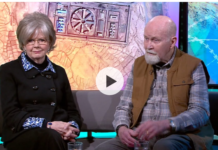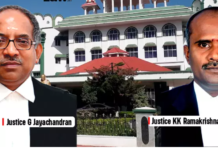The murder of 11-year-old Papayo haunts his mother, Sallay Kalokoh. Four years ago, he went out to sell fish at the market in Makeni, Sierra Leone, and never returned. After a two-week search, his family found his mutilated corpse at the bottom of a well, his vital organs, eyes, and an arm removed.
“Today I’m in pain. They killed my child and now there is just silence,” Ms. Kalokoh told BBC Africa Eye. She explained that parents in Sierra Leone live in constant fear, warning their children not to go to isolated places or accept gifts from strangers. “It happens frequently in this country,” she said.
As a native of Makeni, I am haunted by Papayo’s death and the many other reports of killings linked to ‘juju’—black magic—that are rarely investigated. In Papayo’s case, the police never officially confirmed it as a ritual killing, where a person is murdered for body parts to be used in magic rituals.
These illicit juju practitioners promise prosperity and power to clients who pay large sums, falsely believing human body parts make charms more potent. However, bringing culprits to justice is nearly impossible. The authorities are severely under-resourced—the country of 8.9 million people has only one pathologist. Furthermore, a deep-seated belief in witchcraft, even among police officers, often creates a fear of pursuing these cases.
Driven to uncover more about this underground trade, our BBC Africa Eye team set out to investigate. We found two men who claimed to be juju practitioners and offered to obtain body parts for ritual purposes. Both claimed to be part of extensive networks, with one boasting of powerful clients across West Africa.
A member of our team, using the alias Osman, went undercover as a politician seeking power through human sacrifice. We travelled to a remote area to meet a man calling himself Kanu. Wearing a ceremonial red mask to hide his identity, Kanu claimed to work with “big, big politicians” in Guinea, Senegal, and Nigeria. He showed Osman what he said was a human skull and a pit behind his shrine where he “slaughtered” people. When Osman specified he wanted limbs from a woman, Kanu quoted a price of 70 million Leones (£2,500). Anxious not to put anyone at risk, we did not proceed but handed our evidence to the police.
Such practitioners often operate under the guise of traditional healers, or herbalists, who are a vital part of Sierra Leone’s healthcare landscape. With only about 1,000 registered doctors compared to an estimated 45,000 traditional healers, most of the population relies on them for everything from common illnesses to mental health issues.
Sheku Tarawallie, president of Sierra Leone’s Council of Traditional Healers, insists that “diabolic” juju men like Kanu are giving legitimate healers a bad name. “We are healers, we are not killers,” he said, blaming the ritual killings on those with a “lust for power and money.” He is working to clear their image and is even collaborating on a plan to open a traditional medicine clinic.
The scale of the problem is difficult to measure. According to researcher Emmanuel Sarpong Owusu, ritual murders in African countries are often not officially recorded or are misclassified, and an estimated 90% of perpetrators are never apprehended.
Our investigation led us to a second suspected supplier, a man called Idara, operating out of a crime-ridden suburb of Freetown. He claimed to have 250 herbalists working under him. “There are no human parts that we don’t work with,” he told undercover Osman. When Idara later called to say his team had identified a victim, we immediately contacted Police Commissioner Ibrahim Sama.
A raid was organised, but it required the assistance of Mr. Tarawallie, as police officers are often superstitious about confronting rogue herbalists. “I know that they have their own powers that are beyond my knowledge,” said one officer on the raid. Idara was arrested after being found hiding in a roof, clutching a knife. Mr. Tarawallie identified human bones, hair, and cemetery dirt on the property. Idara and two other men were charged with practising sorcery and possessing traditional weapons used in ritual killings. They have pleaded not guilty and been granted bail.
Meanwhile, we never heard back from the police regarding Kanu, and he has become unreachable. This pattern of stalled justice is common. A high-profile case involving a murdered university lecturer was referred to the High Court over a year ago, but the BBC has learned it has not been pursued, and the suspects are on bail.
This failure of justice struck my own family during our investigation. In May, my 28-year-old cousin, Fatmata Conteh, a hairdresser and mother of two, was murdered in Makeni. Her body was dumped by the roadside; several of her front teeth were missing, leading the community to believe it was a ritual killing.
My family paid for an autopsy ourselves, as the authorities could not afford it, but the results were inconclusive. No arrests have been made. For Fatmata’s family, and for Papayo’s mother Sallay, the lack of closure and the feeling of abandonment by the police fuel a cycle of fear and terror in our community.
By James Kisoo



















